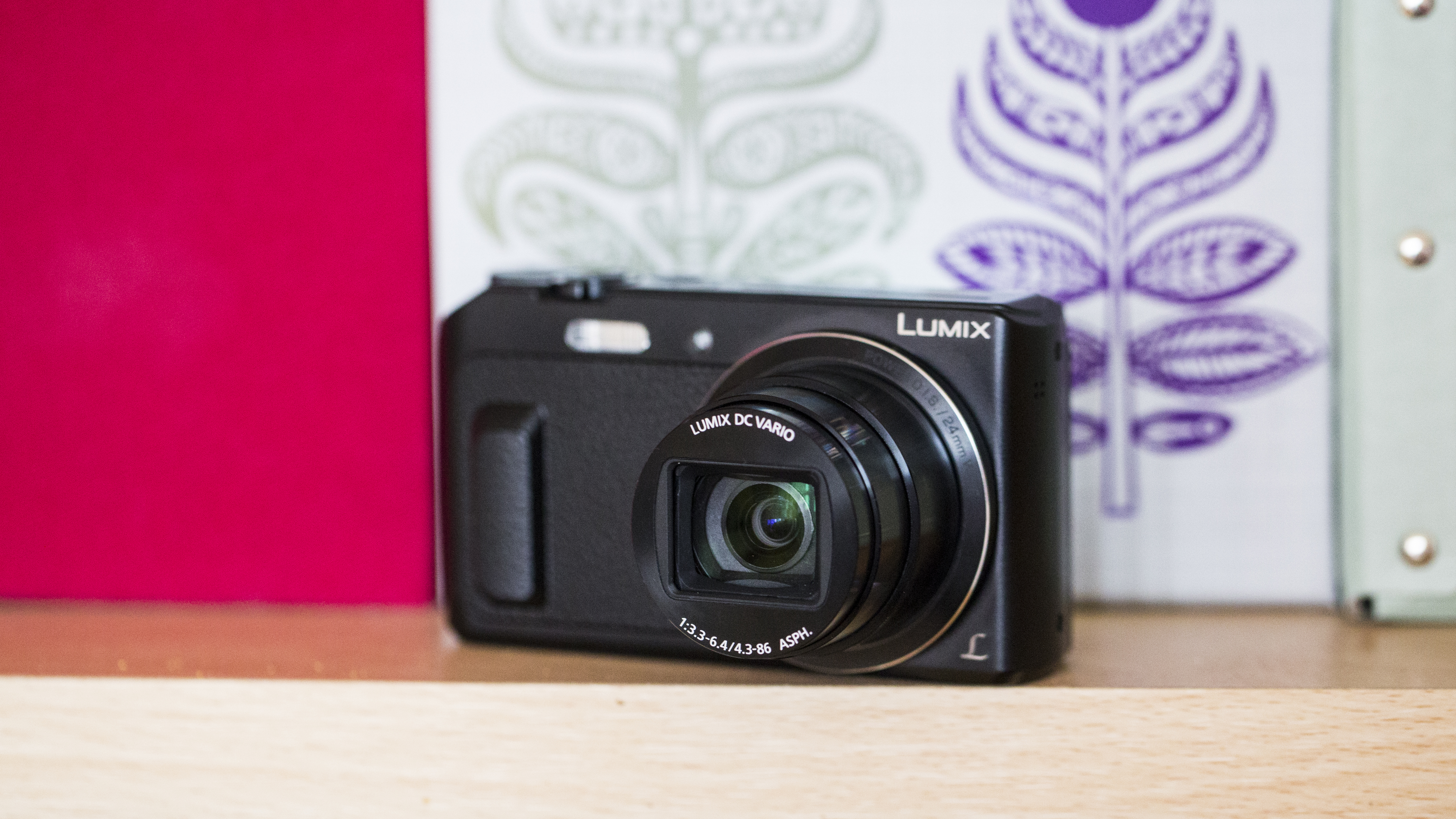TechRadar Verdict
A well-rounded camera which offers a decent amount for your money. Ideal for travelling with, but if you can stretch your budget, it's worth investigating the TZ70 too.
Pros
- +
Manual control
- +
20x optical zoom
- +
Inbuilt Wi-Fi
Cons
- -
No raw format shooting
- -
No touchscreen
- -
Can't change autofocus point
Why you can trust TechRadar
Launched at the same time as the TZ70, the TZ57 is intended as the TZ70's more affordable sibling. For the reduction in cost, you inevitably get a reduction in features (there's a shorter zoom, no raw format shooting and no viewfinder), but you are still left with some pretty appealing specs for travel photographers.
The TZ57 features a 16 million pixel high-sensitivity MOS sensor, and a 20x optical zoom which gives you an equivalent focal length of 28-560mm in 35mm terms. There's also a digital zoom which boosts that reach to 40x.
Although not touch sensitive, the three-inch, 1,040k dot LCD screen tilts to face all the way forward, making it ideal for selfies, but also useful when framing other awkward shots.
Other features include full manual control, inbuilt Wi-Fi and full HD video recording.
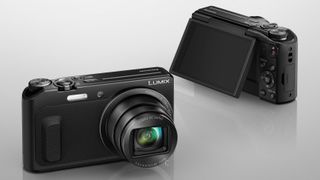
Build Quality & Handling
By compact camera standards, the TZ57 is fairly chunky and heavy, and although you should still be able to fit it into your jeans pocket, there are slimmer 20x optical zoom cameras on the market (such as the Sony WX350). On the plus side, the heft gives it a feel of quality.
On the front of the camera is a rubberised grip which helps your finger to sit snugly and comfortably. All of the buttons on the TZ57 can be found grouped on the right hand side of the camera body, making it easy to use it one-handed.
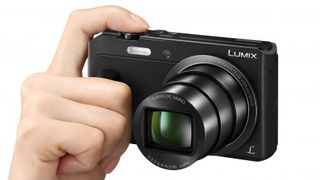
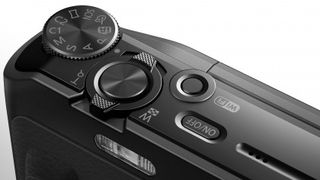
A mode dial is found on top of the camera, which allows you to quickly switch between the different exposure modes available without having to delve into a menu. On this dial you'll find all the usual modes, such as aperture priority, scene mode, intelligent auto, creative mode, and helpfully, a couple of slots for custom settings.
Near the power button is a dedicated Wi-Fi button. This placement is a little awkward since sometimes you'll accidentally hit this when you're trying to switch the camera on and off and wonder why nothing is happening.
Unlike the TZ70, the TZ57 has no dial around the lens, so if you want to change aperture or shutter speed when shooting in manual or semi-automatic modes, you'll need to first press the Exposure button on the back of the camera, and then the directional keys to make changes. Left and right controls aperture, while up and down controls shutter speed.
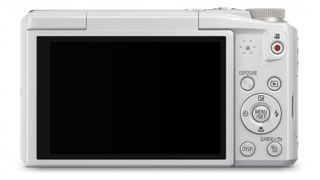
To make quick changes to other key settings, there is a quick menu, accessed via a dedicated button on the back of the camera. From here, you can alter things such as sensitivity (ISO), white balance and autofocusing mode. It would be nice to be able to customise the quick menu to add, or remove, settings as you see fit.
Unfortunately there's no way to set a specific autofocus point, which is disappointing on a camera which otherwise affords full manual control. Instead, you can let the camera choose from one of 21 points for you, or you can choose one point in the middle of the frame and focus and recompose if your subject is off-centre.
The tilting screen feels pretty secure on its hinge. If you tilt it to face forward, by default "self-portrait" mode will be entered. You can switch this off if you wish, but it basically means that there will be a three second delay before the shutter fires, giving you the opportunity to perfect your pout. You can also switch on skin smoothing when in selfie mode if you feel so inclined.
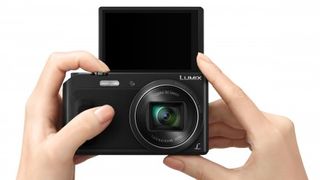
Using the camera's inbuilt Wi-Fi is straightforward. The first time you connect, you can scan a QR code from within the Panasonic Image App and all the relevant settings will be added to your phone, ready for every subsequent time you connect. Frustratingly, you can't change too much from the app itself, as you can with other Panasonic cameras, as some of the options (such as white balance) are greyed out. You can zoom the lens in and out, or alter exposure compensation though. You can also send pictures across from the camera to your phone or device for quick sharing on social networks.
Amy has been writing about cameras, photography and associated tech since 2009. Amy was once part of the photography testing team for Future Publishing working across TechRadar, Digital Camera, PhotoPlus, N Photo and Photography Week. For her photography, she has won awards and has been exhibited. She often partakes in unusual projects - including one intense year where she used a different camera every single day. Amy is currently the Features Editor at Amateur Photographer magazine, and in her increasingly little spare time works across a number of high-profile publications including Wired, Stuff, Digital Camera World, Expert Reviews, and just a little off-tangent, PetsRadar.
Most Popular


